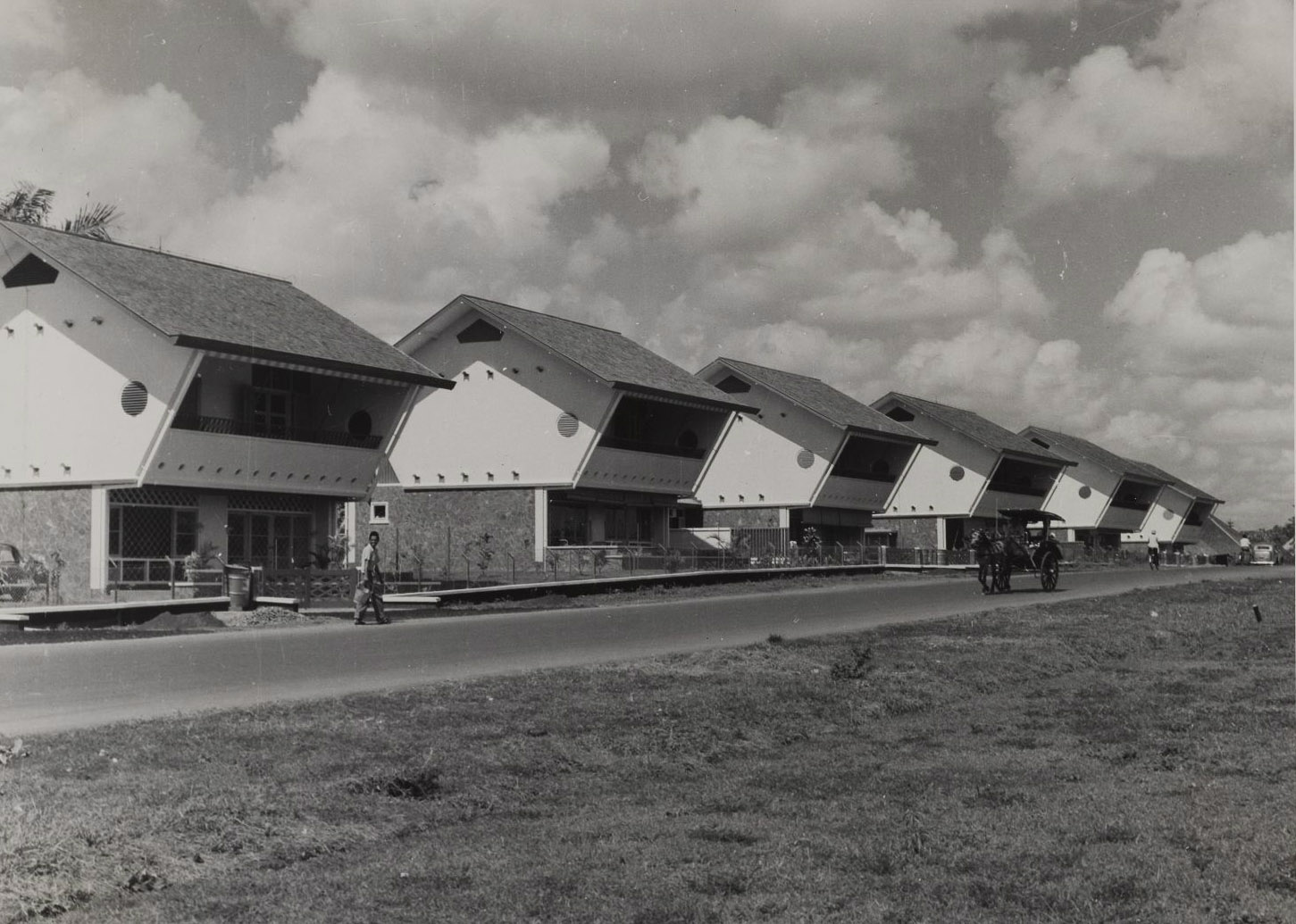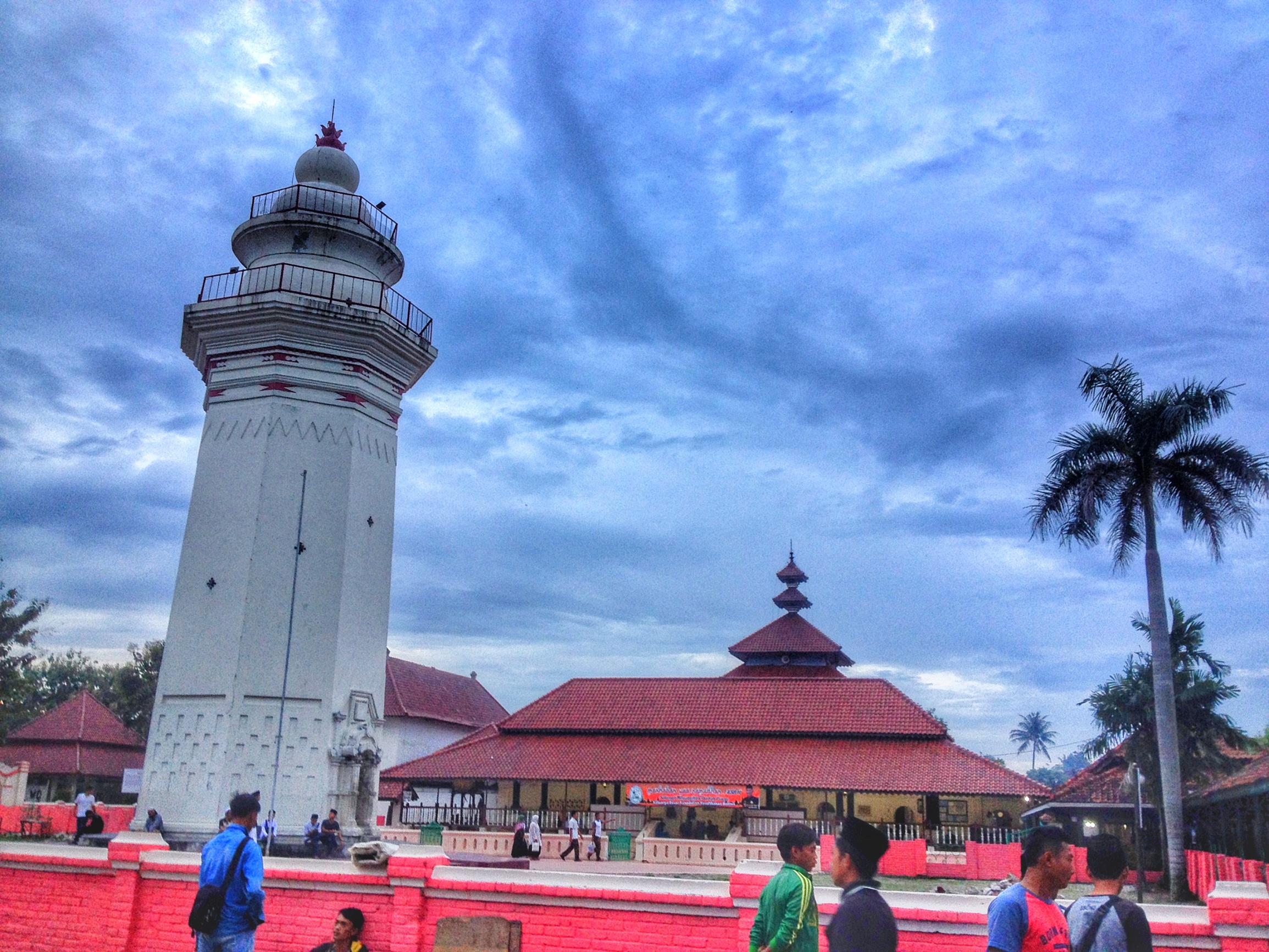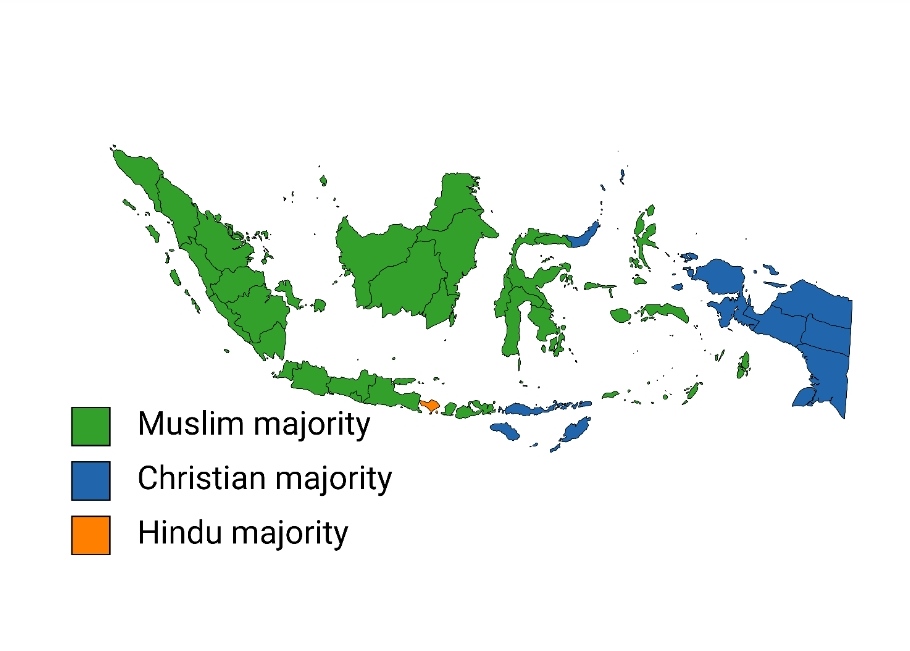|
Al-Azhar Great Mosque
Al-Azhar Great Mosque ( id, Masjid Agung Al-Azhar) is a mosque located in Jalan Sisingamangaraja, Kebayoran Baru, Jakarta. The mosque was constructed between 1953 and 1958. It was originally known simply as ''Mesjid Agung'' (Great Mosque). It was Jakarta's largest mosque when it was built until it was surpassed by the Istiqlal Mosque, Jakarta, Istiqlal Mosque which was completed in 1978. Al-Azhar mosque and the mosque complex is best known for its educational works. History The idea for a building of a mosque and a school in Kebayoran Baru was initiated by 14 people from the Masyumi Party. Under the recommendation of Syamsudin, Indonesian Ministry of Social Affairs at that time, the 14 figures founded the Islamic Dormitory School Foundation (''Yayasan Pesantren Islam'' or YPI) on April 7, 1952. The Ministry of Religious Affairs had provided a limited start-up fund for the construction of a mosque and a school, while the mayor of Jakarta donated a 4 hectares of land in the new su ... [...More Info...] [...Related Items...] OR: [Wikipedia] [Google] [Baidu] |
Kebayoran Baru
Kebayoran Baru is a district ( id, kecamatan) of South Jakarta, Indonesia. The name of the district was derived from an area which was developed in the post-war period as a new suburb town of Jakarta, Kebayoran Baru. Kebayoran Baru was the last residential area to be developed by the Dutch colonial administration. The urban planning was laid in a concept of the Garden city movement, consisting of a well-planned residential area, a shopping center, and a business district, supported with civic facilities e.g. schools, places of worship, hospitals, and parks. Many important governmental institutions are located in Kebayoran Baru, such as the Indonesia Stock Exchange building, the ASEAN Secretariat building, the Criminal Investigation Agency of the National Police, and the City Hall of South Jakarta. Sudirman Central Business District is also located in Kebayoran Baru sub-district. Toponym Kebayoran Baru means "New Kebayoran". The word ''kebayoran'' is derived from ''kabayuran'', mea ... [...More Info...] [...Related Items...] OR: [Wikipedia] [Google] [Baidu] |
Mahmud Shaltut
Sheikh Mahmoud Shaltut ( ar, محمود شلتوت; 23 April 1893 – 13 December 1963) was an Egyptian figure best known for his attempts in Islamic reform. A disciple of Mohammad Abduh's school of thought, Shaltut rose to prominence as Grand Imam of Al-Azhar during the Nasser years from 1958 until his death in 1963. Early life Born in Beheira Governorate, a province in Lower Egypt, Sheikh Shaltut left his small village, Binyat Bani Mansur, in 1906 at age thirteen and enrolled in Ma’had dini of Alexandria- a newly established Azhar-affiliated religious institute. Upon completion of his studies in 1918, Shaltut received his Alimiyya Degree (Azhar equivalent to the BA) and began teaching at the same institute in 1919. At age thirty four, he was called upon to lecture at the Higher Division of al-Azhar and subsequently transferred to Cairo in 1927. Time at Al-Azhar In 1929 Sheikh Mohammad Moustafa al-Maraghi was chosen as rector of al-Azhar University. Al-Maraghi began creating ... [...More Info...] [...Related Items...] OR: [Wikipedia] [Google] [Baidu] |
List Of Mosques In Indonesia
This is a list of mosques in Indonesia. The Indonesian term ''Masjid Agung'' is translated as "Great Mosque", while ''Masjid Raya'' is translated as "Grand Mosque." ''Masjid Keramat'' is translated as "Holy Mosque." ''Masjid Jami'' is translated as Jami Mosque which refers to the congregational mosque where the weekly Jumu'ah, Friday prayer takes place. These lists only include notable mosques. List of mosques in Indonesia As of 2020, a government team led by Fakhry Affan has registered 554,152 mosques in Indonesia. This consists of 258,958 congregational mosques and 295,194 small mosques which fit 40 people or fewer. The government estimates total number of mosques at more than 740,000 nationwide.Indonesia's 'mosque hunters' count them up one at a time ... [...More Info...] [...Related Items...] OR: [Wikipedia] [Google] [Baidu] |
Islam In Indonesia
Islam is the largest religion in Indonesia, with 86.7% of the Indonesian population identifying themselves as Muslim in a 2018 survey. Indonesia is the most populous Muslim-majority country, with approximately 231 million adherents. In terms of denomination, the overwhelming majority (98.8%) are Sunni Muslims, while 1-3 million (1%) are Shia, and are concentrated around Jakarta, and about 400,000 (0.2%) Ahmadi Muslims. In terms of schools of jurisprudence, based on demographic statistics, 99% of Indonesian Muslims mainly follow the Shafi'i school, although when asked, 56% does not adhere to any specific school. Trends of thought within Islam in Indonesia can be broadly categorized into two orientations: "modernism", which closely adheres to orthodox theology while embracing modern learning, and "traditionalism", which tends to follow the interpretations of local religious leaders and religious teachers at Islamic boarding schools ('' pesantren''). There is also a hist ... [...More Info...] [...Related Items...] OR: [Wikipedia] [Google] [Baidu] |
30 September Movement
The Thirtieth of September Movement ( id, Gerakan 30 September, abbreviated as G30S, also known by the acronym Gestapu for ''Gerakan September Tiga Puluh'', Thirtieth of September Movement) was a self-proclaimed organization of Indonesian National Armed Forces members who, in the early hours of 1 October 1965, assassinated six Indonesian Army generals in an abortive ''coup d'état'', resulting in the unofficial but more accurate name of Gestok, for ''Gerakan Satu Oktober'', or First of October Movement. Later that morning, the organisation declared that it was in control of media and communication outlets and had taken President Sukarno under its protection. By the end of the day, the coup attempt had failed in Jakarta. Meanwhile, in central Java there was an attempt to take control over an army division and several cities. By the time this rebellion was put down, two more senior officers were dead. In the days and weeks that followed, the army, socio-political, and religious ... [...More Info...] [...Related Items...] OR: [Wikipedia] [Google] [Baidu] |
Indonesian Killings Of 1965–66
Indonesian is anything of, from, or related to Indonesia, an archipelagic country in Southeast Asia. It may refer to: * Indonesians, citizens of Indonesia ** Native Indonesians, diverse groups of local inhabitants of the archipelago ** Indonesian women, overview of women's history and contemporary situations * Indonesian language (Indonesian: ''Bahasa Indonesia''), the official language of Indonesia ** Indonesian languages, overview of some of the 700 languages spoken in Indonesia ** Indonesian names, customs reflecting the multicultural and polyglot nature of Indonesia * Indonesian culture, a complex of indigenous customs and foreign influences ** Indonesian art, various artistic expressions and artworks in the archipelago ** Indonesian cinema, a struggling and developing industry ** Indonesian literature, literature from Indonesia and Southeast Asia with shared language roots ** Indonesian music, hundreds of forms of traditional and contemporary music ** Indonesian philosophy, ... [...More Info...] [...Related Items...] OR: [Wikipedia] [Google] [Baidu] |
Dawah
Dawah ( ar, دعوة, lit=invitation, ) is the act of inviting or calling people to embrace Islam. The plural is ''da‘wāt'' (دَعْوات) or ''da‘awāt'' (دَعَوات). Etymology The English term ''Dawah'' derives from the Arabic word , which comes from the root variously meaning 'to invite' or 'to pray'. ''Da‘wah'' literally means "issuing a summons" or "making an invitation". Grammatically, the word represents a gerund of a verb with the triconsonantal root ''d-ʕ-w'' meaning variously "to summon" or "to invite". A Muslim who practices ''da‘wah'', either as a religious worker or in a volunteer community effort, is called a ' (, plural ' ). A ''dā‘ī'', is a person who invites people to understand and accept Islam through dialogue and other techniques, may be regarded as a missionary inviting people to the faith, prayer and manner of Islamic life. The term ''da'wah'' has other senses in the Qur'an. In ''sura'' (chapter) 30:25, for example, it denotes th ... [...More Info...] [...Related Items...] OR: [Wikipedia] [Google] [Baidu] |
Communism
Communism (from Latin la, communis, lit=common, universal, label=none) is a far-left sociopolitical, philosophical, and economic ideology and current within the socialist movement whose goal is the establishment of a communist society, a socioeconomic order centered around common ownership of the means of production, distribution, and exchange which allocates products to everyone in the society.: "One widespread distinction was that socialism socialised production only while communism socialised production and consumption." Communist society also involves the absence of private property, social classes, money, and the state. Communists often seek a voluntary state of self-governance, but disagree on the means to this end. This reflects a distinction between a more libertarian approach of communization, revolutionary spontaneity, and workers' self-management, and a more vanguardist or communist party-driven approach through the development of a constitutional socialist st ... [...More Info...] [...Related Items...] OR: [Wikipedia] [Google] [Baidu] |
Imam
Imam (; ar, إمام '; plural: ') is an Islamic leadership position. For Sunni Muslims, Imam is most commonly used as the title of a worship leader of a mosque. In this context, imams may lead Islamic worship services, lead prayers, serve as community leaders, and provide religious guidance. Thus for Sunnis, anyone can study the basic Islamic sciences and become an Imam. For most Shia Muslims, the Imams are absolute infallible leaders of the Islamic community after the Prophet. Shias consider the term to be only applicable to the members and descendents of the '' Ahl al-Bayt'', the family of the Islamic prophet Muhammad. In Twelver Shiasm there are 14 infallibles, 12 of which are Imams, the final being Imam Mahdi who will return at the end of times. The title was also used by the Zaidi Shia Imams of Yemen, who eventually founded the Mutawakkilite Kingdom of Yemen (1918–1970). Sunni imams Sunni Islam does not have imams in the same sense as the Shi'a, an importan ... [...More Info...] [...Related Items...] OR: [Wikipedia] [Google] [Baidu] |
Grand Imam Of Al-Azhar
The Grand Imam of al-Azhar ( ar, الإمام الأكبر), also known as Grand Sheikh of al-Azhar ( ar, links=no, شيخ الأزهر الشريف), currently Ahmed el-Tayeb, is a prestigious and a prominent official title in Egypt. He is considered by some Muslims to be the highest authority in Sunni Islamic thought and Islamic jurisprudence and holds great influence on followers of the theological Ash'ari and Maturidi traditions worldwide. The Grand Imam heads the Al-Azhar Al Sharif, al-Azhar Mosque, and by extension al-Azhar University, and is responsible for official religious matters along with the Grand Mufti of Egypt. History of the title The title of the Grand Imam of al-Azhar was officially established in 1961. In the 14th century the head of al-Azhar was granted the title of ''Mushrif of al-Azhar'', then later '' Nazir'' of Al-Azhar and, during the Ottoman Empire, the Grand Sheikh of al-Azhar. Today the bearer of the title also carries the title of the Grand Sheikh. S ... [...More Info...] [...Related Items...] OR: [Wikipedia] [Google] [Baidu] |
Jakarta
Jakarta (; , bew, Jakarte), officially the Special Capital Region of Jakarta ( id, Daerah Khusus Ibukota Jakarta) is the capital and largest city of Indonesia. Lying on the northwest coast of Java, the world's most populous island, Jakarta is the largest city in Southeast Asia and serves as the diplomatic capital of ASEAN. The city is the economic, cultural, and political centre of Indonesia. It possesses a province-level status and has a population of 10,609,681 as of mid 2021.Badan Pusat Statistik, Jakarta, 2022. Although Jakarta extends over only , and thus has the smallest area of any Indonesian province, its metropolitan area covers , which includes the satellite cities Bogor, Depok, Tangerang, South Tangerang, and Bekasi, and has an estimated population of 35 million , making it the largest urban area in Indonesia and the second-largest in the world (after Tokyo). Jakarta ranks first among the Indonesian provinces in human development index. Jakarta's busin ... [...More Info...] [...Related Items...] OR: [Wikipedia] [Google] [Baidu] |
Ulama
In Islam, the ''ulama'' (; ar, علماء ', singular ', "scholar", literally "the learned ones", also spelled ''ulema''; feminine: ''alimah'' ingularand ''aalimath'' lural are the guardians, transmitters, and interpreters of religious knowledge in Islam, including Islamic doctrine and law. By longstanding tradition, ulama are educated in religious institutions ''(madrasas)''. The Quran and sunnah (authentic hadith) are the scriptural sources of traditional Islamic law. Traditional way of education Students do not associate themselves with a specific educational institution, but rather seek to join renowned teachers. By tradition, a scholar who has completed his studies is approved by his teacher. At the teacher's individual discretion, the student is given the permission for teaching and for the issuing of legal opinions ''( fatwa)''. The official approval is known as the '' ijazat at-tadris wa 'l-ifta'' ("license to teach and issue legal opinions"). Through time, ... [...More Info...] [...Related Items...] OR: [Wikipedia] [Google] [Baidu] |






